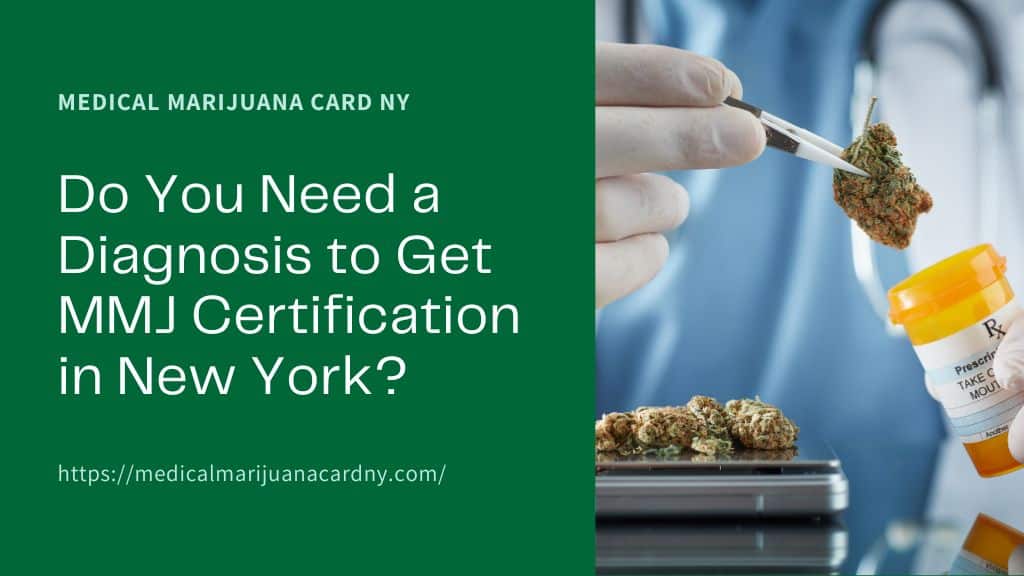In New York, the legalization of medical marijuana has significantly expanded access for various patient groups, including those suffering from Alzheimer’s Disease. This progressive step acknowledges the potential neuroprotective properties of medical marijuana, which might slow the progression of Alzheimer’s Disease. The state empowers healthcare providers to certify patients for medical marijuana use, ensuring that individual health conditions and needs are thoroughly considered.
This patient-centric approach in the evolving legal framework of New York highlights a commitment to accessibility and professional medical judgment in the use of medical marijuana, offering a ray of hope and new therapeutic possibilities for Alzheimer’s patients. This blog delves into these developments, providing valuable insights for those considering medical marijuana for Alzheimer’s Disease management.
Table of Contents
ToggleUnderstanding Alzheimer’s Disease
What Is Alzheimer’s Disease?
Alzheimer’s disease is a neurodegenerative disorder characterized by irreversible neuronal loss, primarily caused by the accumulation of tau proteins and neurofibrillary tangles in the brain tissue. This leads to progressive dementia and memory loss, affecting various cognitive functions such as communication, language, memory, and motor skills. Alzheimer’s significantly impacts a person’s ability to interact with their environment and carry out daily activities, eventually leading to complete dependence on caregivers.
Who Is Affected by Alzheimer’s Disease?
Alzheimer’s Disease predominantly affects older adults, with the risk increasing significantly with age. It’s estimated that 6.7 million Americans aged 65 and older are living with Alzheimer’s dementia, making it one of the most common causes of dementia and a leading cause of disability and dependence among the elderly. Alzheimer’s disease accounts for 60% to 70% of dementia cases. A combination of genetic and environmental factors contributes to the risk of developing Alzheimer’s.
For instance, having a family history of Alzheimer’s increases the risk significantly, while lifestyle factors like smoking can also contribute to its development. In the United States, the prevalence of Alzheimer’s disease varies by state, with larger states like California, Florida, and New York having higher numbers of affected individuals.
Why Does Alzheimer’s Disease Occur?
The onset of Alzheimer’s Disease (AD) is a complex process influenced by various factors, including genetics and molecular mechanisms. A key genetic risk factor identified is apoE4, a variant of apolipoprotein E. Additionally, recent studies have highlighted the role of proteins such as beta-amyloid and tau in the disease’s development. The accumulation of amyloid-β oligomers and neuroinflammation are crucial aspects of AD’s molecular landscape. Researchers have found that the reduced binding of apoE4 to complement factor H can promote amyloid-β oligomerization and neuroinflammation, contributing to the onset of Alzheimer’s disease.
Furthermore, altered brain energy metabolism related to astrocytes and the degeneration of microglia, immune cells in the brain, have been identified as contributing factors to the disease’s progression. This degeneration appears to be linked to cognitive decline in Alzheimer’s and vascular dementia, possibly initiated by repeated episodes of low blood flow and oxygen delivery to the brain over time due to acute stroke or chronic conditions such as hypertension and diabetes.
How Does Alzheimer’s Disease Impact Cognitive Functioning?
Alzheimer’s Disease primarily affects cognitive functioning, leading to a gradual decline in memory, reasoning, learning, and thinking abilities. This decline results from the damage and death of nerve cells in the brain, caused by the tangling of tau proteins and the clumping of beta-amyloid proteins.
These processes lead to the formation of plaques that block cell-to-cell signaling and trigger an immune response, causing inflammation. Most people with Alzheimer’s disease are over 65 years old, but the brain changes associated with the disease can begin decades before symptoms are evident.
Medical Marijuana For Alzheimer’s Disease
What Are the Potential Benefits of Medical Marijuana for Alzheimer’s Disease?
Medical marijuana may offer several benefits for Alzheimer’s Disease patients. Its therapeutic potential lies in alleviating symptoms like depression, anxiety, agitation, and sleep disturbances. Some studies suggest that certain strains of marijuana, notably Sativa strains, can improve mood and increase energy, which might be beneficial for Alzheimer’s patients experiencing fatigue and mood-related symptoms. Furthermore, specific strains are believed to assist with memory and relaxation, potentially reducing aggression seen in Alzheimer’s patients.
How Can Medical Marijuana Influence Alzheimer’s Disease Progression?
While conclusive evidence on medical marijuana’s impact on the progression of Alzheimer’s Disease is still evolving, promising research indicates potential benefits. The active compounds in cannabis, particularly THC and CBD, might interact with brain receptors to offer neuroprotective effects. These compounds could help in managing neuroinflammation and promote neuronal survival, potentially influencing the disease’s progression positively. However, it’s important to note that the research is ongoing, and comprehensive clinical evidence is still required to firmly establish these benefits.
Which Components of Medical Marijuana Might Benefit Alzheimer’s Patients?
Alzheimer’s patients might benefit from various components present in medical marijuana. THC and CBD are the two main cannabinoids that have been studied for their potential therapeutic effects. Terpenes like limonene and pinene might help alleviate memory loss and “brain fog,” while beta-caryophyllene has anti-inflammatory properties that could be beneficial in managing neuroinflammation. Additionally, flavonoids found in cannabis, such as Cannflavin A, B, C, quercetin, and apigenin, possess antioxidative properties and might reduce the risk of Alzheimer’s disease.
Why Might Medical Marijuana Be Considered for Alzheimer’s Patients?
Medical marijuana might be considered for Alzheimer’s patients primarily for its symptom management potential. It can stimulate appetite, improve insomnia, and alleviate symptoms like depression and anxiety, which are common in Alzheimer’s Disease. Additionally, there is preliminary evidence suggesting that it might help in reducing agitation, aggression, and irritability, often observed in Alzheimer’s patients. Given the personalized nature of Alzheimer’s symptoms, medical marijuana could offer a more tailored approach to symptom relief compared to traditional treatments.
Legal and Medical Marijuana
What Are the Legal Guidelines for Medical Marijuana in New York?
In New York, medical marijuana has been legally recognized and is regulated under the Marijuana Regulation & Taxation Act (MRTA). This act has expanded the medical marijuana program to increase patient access and affordability. The MRTA also has provisions for expanding the list of conditions that qualify for medical marijuana use, allowing medical practitioners more flexibility in certifying patients for its use. This includes the ability to certify conditions not previously listed, making the program more accessible to a broader range of patients, including those with Alzheimer’s Disease.
Who Can Legally Prescribe Medical Marijuana in New York for Alzheimer’s Disease?
Medical marijuana in New York can be prescribed by healthcare providers who are licensed to practice in the state and have completed an approved course on medical cannabis. These courses cover important topics such as the pharmacology of cannabis, contraindications, side effects, overdose prevention, and other relevant content, ensuring that healthcare providers are well-informed about medical cannabis before prescribing it to patients. This requirement ensures that patients, including those with Alzheimer’s Disease, receive appropriate and safe recommendations for medical marijuana use.
Where Can Patients Obtain Medical Marijuana in New York?
Patients in New York who have been certified for medical marijuana use can obtain their medication from registered organizations licensed to dispense medical cannabis. These organizations offer a variety of products and prices may vary among them. Patients should contact these organizations directly for information regarding product availability, pricing, and any available discount programs. It’s important for patients to consider their individual dosing needs and consult with their healthcare provider to determine the most suitable products for their condition.
Practical Considerations
How Can Patients Safely Use Medical Marijuana for Alzheimer’s Disease?
For Alzheimer’s patients in New York, safely using medical marijuana starts with a physician’s certification. It’s vital to discuss and tailor the treatment to the patient’s specific symptoms and overall health condition. Various forms of medical marijuana, like edibles, tinctures, and oils, are available and should be chosen based on the patient’s comfort and medical advice. Careful monitoring of the effects is crucial, especially considering the individual reactions to different strains and dosages.
What Are the Potential Side Effects of Using Medical Marijuana in Alzheimer’s Patients?
While medical marijuana can offer several benefits, it’s important to be aware of potential side effects. High doses of THC, for instance, might impair memory and coordination, which is particularly concerning in Alzheimer’s patients. Side effects might also include alterations in senses and balance. Given the complexity of Alzheimer’s disease, any treatment, including medical marijuana, should be closely monitored for any adverse reactions or interactions with other medications the patient might be taking.
Why Should Alzheimer’s Patients and Caregivers Consider Medical Marijuana?
Medical marijuana might be considered for Alzheimer’s patients primarily due to its potential in symptom management. It could help in alleviating agitation, anxiety, depression, and even some physical symptoms like neuropathic pain. Moreover, cannabinoids like CBD and THC have been observed to possibly promote neurogenesis and prevent the buildup of amyloid plaques, a key factor in Alzheimer’s disease.
Medical marijuana could offer a complementary treatment to conventional therapies, potentially reducing the need for certain medications that might have more severe side effects. However, it is essential to approach this treatment option under the guidance of a qualified healthcare provider, keeping in mind the unique needs and health conditions of each Alzheimer’s patient.
Getting a Medical Marijuana Recommendation in New York
Can Alzheimer’s Patients Get a Medical Marijuana Recommendation in New York?
Yes, Alzheimer’s patients in New York can obtain a medical marijuana recommendation. As of March 2023, New York does not enforce a list of qualifying medical conditions for medical marijuana use. This change means that healthcare providers have the discretion to recommend medical marijuana if they believe it could be an effective treatment for a patient’s condition, including Alzheimer’s Disease.
How Can Patients and Caregivers Obtain a Medical Marijuana Recommendation in New York?
To obtain a medical marijuana recommendation in New York, patients or their caregivers should follow these steps:
- Consult a Qualified Medical Professional: Patients need to meet with a healthcare provider who is registered with the New York State Department of Health’s Medical Marijuana Program. This could be a physician, nurse practitioner, or physician’s assistant.
- Certification and Registration: Once the healthcare provider certifies the patient for medical marijuana use, the patient will be automatically registered with the Medical Cannabis Program. The certification issued by the healthcare provider will include a registry ID number, which, along with a government-issued photo ID, allows the patient to purchase medical marijuana.
Who Can Assist in Obtaining a Medical Marijuana Recommendation for Alzheimer’s Disease?
Healthcare providers who can prescribe controlled substances in New York, and have completed a mandatory cannabis-related course, are authorized to certify patients for medical marijuana. These providers include physicians, nurse practitioners, and physician’s assistants. They have undergone specific training that covers the pharmacology of cannabis, its potential risks and benefits, and other essential topics.
Additionally, medical cannabis dispensaries in New York have pharmacists on-site to assist patients in finding suitable cannabis products and to provide guidance on usage and potential drug interactions.
Conclusion
Medical marijuana emerges as a potential adjunct therapy for Alzheimer’s Disease, primarily for its symptom management capabilities. While conclusive clinical evidence is still underway, early research suggests that specific components of cannabis, such as THC and CBD, along with terpenes and flavonoids, may offer neuroprotective effects and alleviate symptoms like depression, anxiety, and agitation. These benefits could be particularly valuable in improving the quality of life for Alzheimer’s patients, who often experience a range of cognitive and emotional challenges.
However, it is crucial to approach the use of medical marijuana under professional medical guidance, considering the individualized nature of Alzheimer’s symptoms and the varying reactions to cannabis-based treatments. The evolving research landscape continues to shed light on the potential roles of medical marijuana in Alzheimer’s care, making it a topic of high interest for patients, caregivers, and medical professionals alike.
Resources
https://medicalxpress.com/news/2023-05-reveals-inflammation-alzheimer-disease.html
https://www.sciencedaily.com/releases/2023/09/230912110212.htm
https://www.ncbi.nlm.nih.gov/pmc/articles/PMC6970569/
https://www.healthline.com/health/medical-marijuana/marijuana-and-dementia
https://www.sciencedirect.com/science/article/abs/pii/S096522992030443X
https://www.sciencedirect.com/science/article/abs/pii/S1064748116300616





